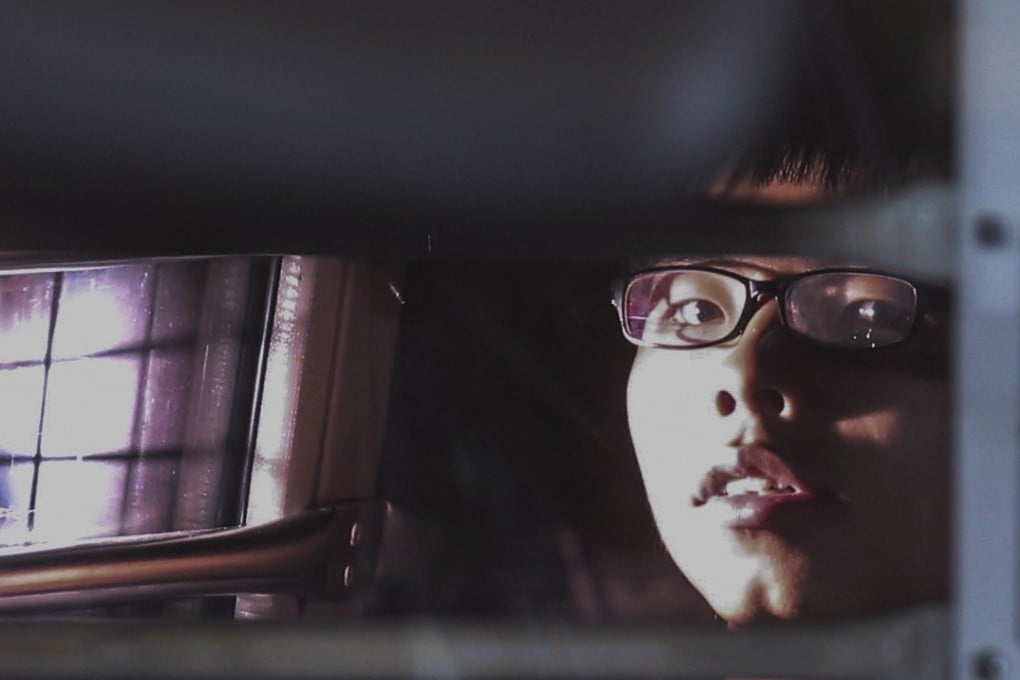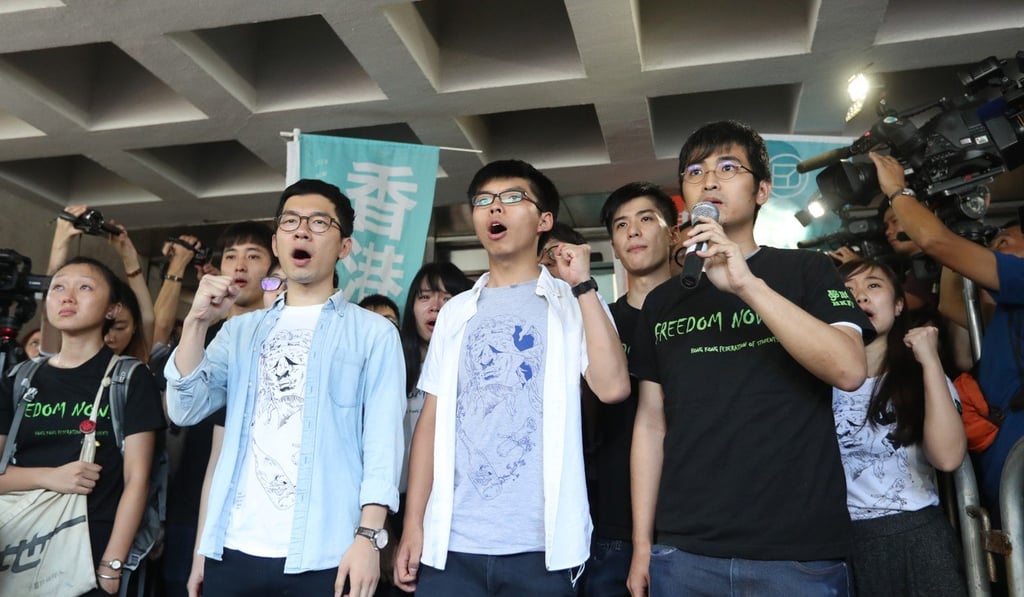Joshua Wong and other jailed Hong Kong student leaders see political careers halted
Three student leaders of Occupy Movement handed prison terms of six to eight months for storming government headquarters compound in 2014, with judge decrying incitement to break law to pursue ideals

The ruling against Joshua Wong Chi-fung, Nathan Law Kwun-chung and Alex Chow Yong-kang effectively halted their budding political careers, as they were slapped with a five-year ban from public office because of their criminal records.
In a victory for the government which had sought stiffer sentences for the trio, Demosisto leaders Wong and Law, after completing their community service sentences meted out earlier, were jailed for six and eight months respectively, while former student union leader Chow had his initial suspended three-week jail sentence replaced by a seven-month custodial term.
All three indicated they would take their case to the Court of Final Appeal.
In a strongly worded, 64-page ruling, the three Court of Appeal judges took turns to rebuke unlawful acts committed in the name of exercising freedoms.
